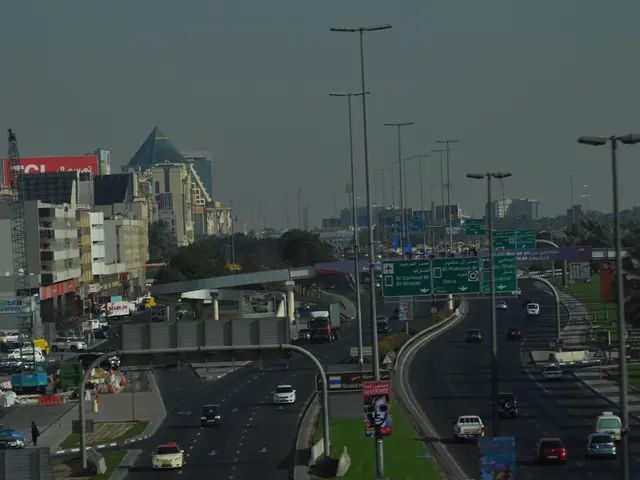Rapid Network Expansion Plans Announced by Government - Government initiates swift network enlargement strategies
Expansion of Digital Networks in Germany Gains Momentum: Federal Cabinet Proposes Telecommunications Law Amendments
Berlin, Germany - The German government has put forth a proposal to substantially accelerate the expansion of fiber optic and fast mobile networks, as announced by the Federal Ministry of Digital Affairs. If passed by the Bundestag, the proposed bill aims to designate network expansion as an overriding public interest, thereby speeding up the approval process for related projects.
The coalition government, comprising the Union and SPD, is pursuing this initiative as part of their agreement to introduce a legislative acceleration law for the expansion of mobile networks and fiber optics. Federal Digital Minister Karsten Wildberger emphasized the urgency of moving forward, stating, "The digitalization of our country is of utmost importance."
The plans for fiber optic network expansion face numerous challenges, with only approximately 10.6 million households and businesses currently having access to plans offering speeds up to 2Gbps. Optimistic projections suggest that by 2030, only around 15 million fiber-to-the-building/home (FTTB/H) connections will be active.
One notable concern raised by the VATM (Association of Telecommunications and Value-Added Services Providers) pertains to the pace of expansion, with calls for better utilization of existing infrastructure, such as Deutsche Telekom's unused ducts. Despite the challenges, Telekom reported significant progress, with over 147,000 more households and businesses gaining access to fiber connections in April alone.
In the realm of fast mobile networks, O2 Telefónica has initiated a nationwide rollout of 5G-equipped streetlights in Germany's 25 largest cities. This innovative project aims to boost network coverage in crowded city centers and popular tourist destinations by incorporating small 5G antennas and fiber connections into LED lighting fixtures.
These smart poles provide improved network performance in areas with restricted rooftop space for traditional masts and are designed to blend seamlessly with the urban landscape while delivering faster, more dependable service in high-data demand zones. O2 Telefónica and its infrastructure partner, 5G Synergiewerk, have plans to extend this project beyond the initial 25 cities in future stages.
The Bundestag is now set to debate the proposed bill, with a possible passage before the summer break. The proposed amendments to the TKG (Telecommunications Act) are intended to expedite the expansion of telecommunications networks, including fiber optic infrastructure, recognizing the need for speedy network expansion as a vital public interest.
- The community policy proposed by the German government, including the expedited expansion of digital networks, could potentially revolutionize the industry and business sectors, as technology advances could lead to new opportunities in finance and politics, making general-news coverage essential.
- While the expansion of fiber optic networks faces challenges, such as the need for faster deployment, organizations like the VATM are advocating for better utilization of existing infrastructure, like Deutsche Telekom's unused ducts, which could accelerate the process of vocational training for new network technicians.
- As the German government works towards the acceleration of digital networks, innovative projects like O2 Telefónica's 5G-equipped streetlights demonstrate the possible integration of vocational training in the telecommunications industry, as these smart poles require technicians with expertise in both fiber connections and LED lighting fixtures.







